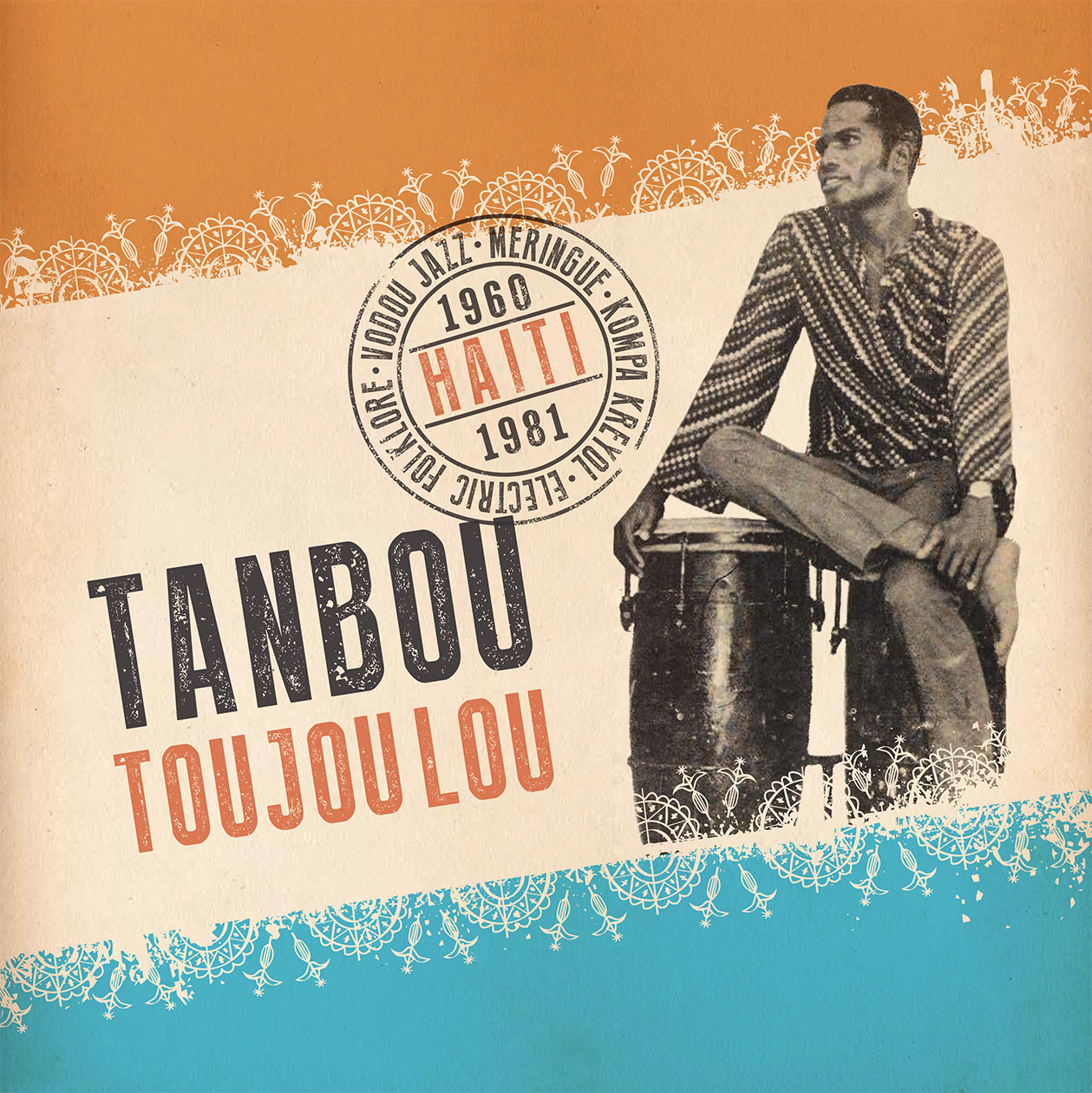It has been long recognized that music, far from being a mere entertainment, carries within it the heritage of those who create it. In the transmission of rituals, conventions and folklore, the identity of a region, a country and its people can be most evocatively revealed. Nowhere is this more true than in Haiti.
The Caribbean Sea is ringed by a glittering coronet of rich culture and music traditions; Mexico, Central America, Colombia, Venezuela, the Leeward and Virgin Islands, the Lesser Antilles, and the Greater Antilles of Jamaica, Cuba and Puerto Rico. At the center of it all--just southeast of Cuba--is the island comprised of the Dominican Republic and Haiti, surely the crown jewel in terms of musical heritage and diversity. The reasons behind this remarkable story unfold in this very well-documented, 19-track compilation Tanbou Toujou Lou, and its accompanying 20-page booklet brilliantly written, researched and curated by Vik Sohonie.
The kickoff track, “Lagen” (Money) is a case in point. It's a rare track by Zotobre, a supergroup of some of the best musicians of the day, and brings in several elements one by one, introducing the unique palette of Haitian music. Light percussion, a drum kit, and an accordion delicately and flirtatiously set up a steady but complex groove. A quick stab of Farfisa piano, a crisp horn line and--bang--the song really begins. There are so many influences at play: drum patterns from West Africa, horn lines reminiscent of early calypso with a little jazz thrown in, clarinets and accordion lending a French ambiance. Taking a Holmesian approach, it can be easily deduced that these motifs are obviously and literally elementary to Haitian culture. All the clues are there.
While almost 400,000 slaves from Africa arrived in continental North America since the 16th century, the Caribbean area received over five million, bringing the rhythms and sacred chants from Nigeria, Benin, the Congo and elsewhere. Rada, nago, petwo, kongo, ibo and other rhythms merged into the essential ingredients of voudou, one of the cornerstones of Haitian music. French colonization also brought European musical tastes like gavottes and quadrilles, and built fashionable and wealthy cities in whose nightclubs music flourished. For this sophisticated audience there developed a heady blend of all these ingredients along with the enormously influential sounds of Cuba, Haiti’s very close neighbor. The sounds of Mexico and Colombia also filtered in to the mix and the sounds of North America came via the trade ships from ports like New Orleans and Miami. Many Caribbean islands evolved strong and singular musical identities (think Cuba, Jamaica) but Haiti simply absorbed everything under one all-encompassing tent.
Tanbou Toujou Lou presents a prismatic view of the results from the most creative period of Haitian music when adventurous combinations and experimentation produced enormous diversity. There may be many different musical facets on display here, but each one is indelibly Haitian in its soul. The string-driven bands from the countryside like Coupe Cloue's Trio Select sit harmoniously side by side with the fully orchestrated bands from the cities such as Super Jazz de Jeunes. The ghost of New Orleans’ Sidney Bechet drifts through “Epoque Chaleur” from Shupa Shupa. Shades of surf guitar from Les Pachas du Canape Vert bump up against the merengue beats of Nemours Jean Baptiste, yet it all stays wondrously Haitian.
Special mention has to be made of the liner notes by Vik Sohonie. He describes multiple crate-digging journeys in the towns of Haiti and also New York, with its vast Haitian population that fled the vicious regime of Papa Doc Duvalier and his most feared Ton Ton Macoutes. Haiti itself had very little vinyl as most people got their music either live or from radio stations such as Radio Metropole and Radio Haiti, from whose vaults many of the cuts on this compilation were sourced. Vik gives the reader a terrific sense of the sights, smells and music of the towns and countryside, as well an informative primer on the history of this magical land. Despite corruption, extreme poverty and horrendous natural disaster Haiti has and still does produce some of the most joyous and life-affirming music to be found anywhere. This is a great starting point for its discovery.
https://soundcloud.com/ostinatorecords/tanbou-toujou-lou-meringue-kompa-kreyol-vodou-jazz-electric-folklore-from-haiti-1960-1981









